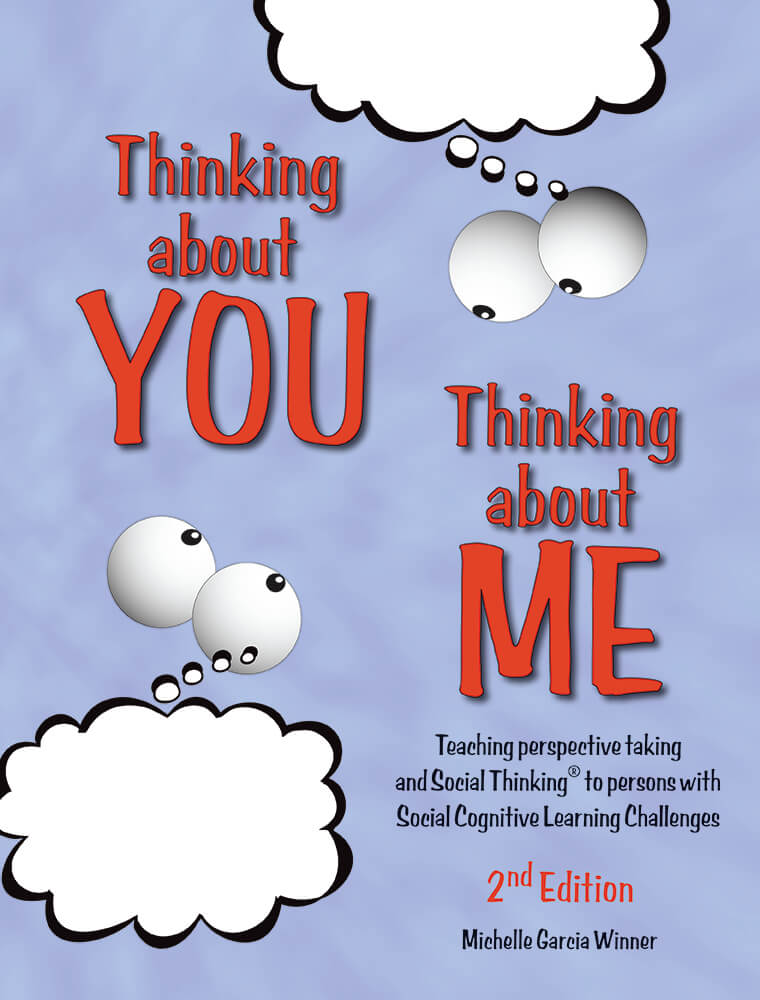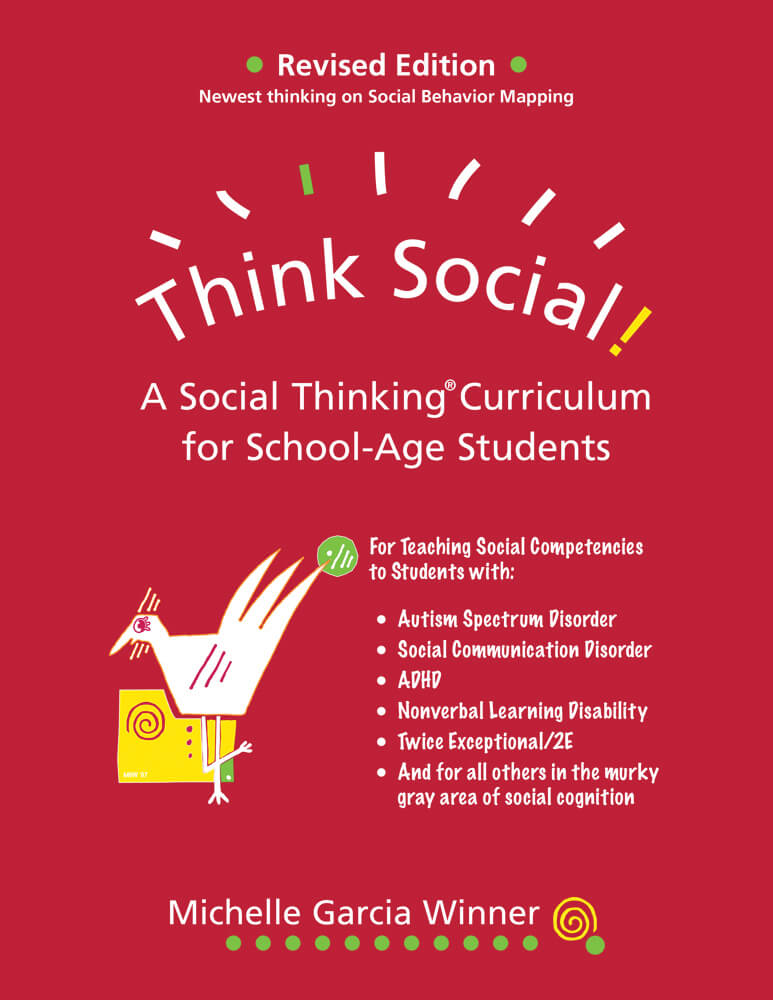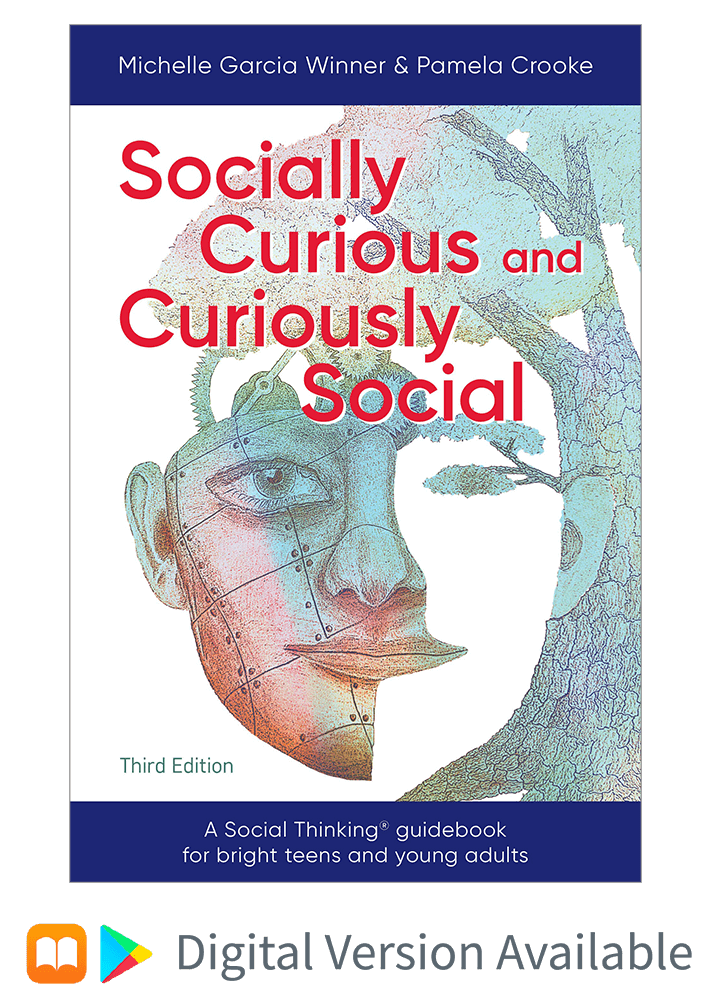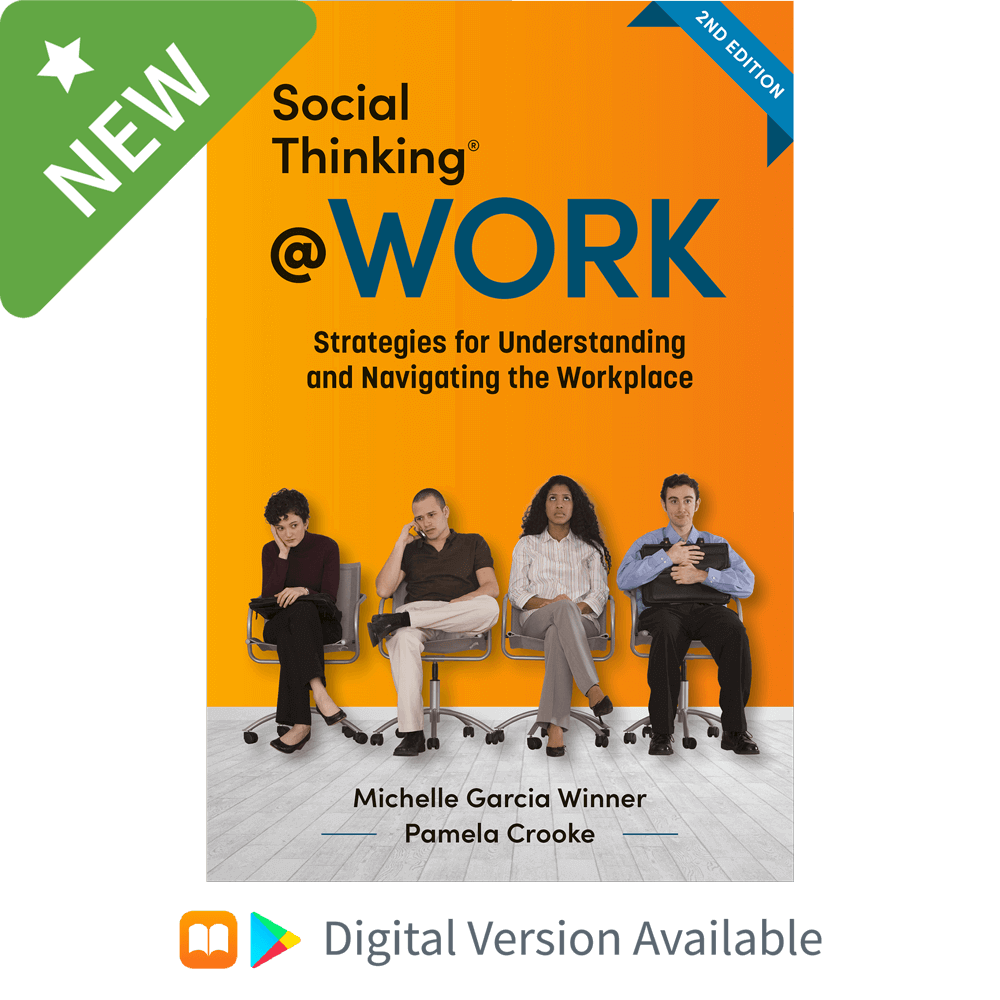Updated: August, 2022
© 2022 Think Social Publishing, Inc.
I’m a thirty-something man with social-cognitive challenges. I’m also a speech-language pathologist. In the Social Thinking – Social Communication Characteristics (ST-SCC) summary, I would describe myself as a “nuance-challenged social communicator,” meaning I have some mild struggles with social situations and may be perceived by others as having below average social skills. My choice to be a speech-language pathologist is a bit of a strange one considering my difficulties with social language. I wanted to share my story about how I came to use the Social Thinking Methodology strategies both at a professional level and a personal level, and how it has shaped my life and career.
In 2003, I graduated from high school with a feeling of uncertainty about what to do with the rest of my life. I remember thinking how important it was to choose the right college major and go into the right career, and how stupid it was that we’re forced to choose these things before we even go to college. Like many other teenage males, I wanted to make video games for a living, for no other reason than I liked to play them. That was reason enough in my mind. Long story short, it didn’t work out. I wasn’t fully committed to it, I started to doubt I even really had a passion for video game design. Liking to play video games and being a programmer/game designer is a huge leap, something I never truly considered until that moment.
My second career choice was becoming a speech-language pathologist. I didn’t know much about speech-language pathology at the time, but after reading about the profession and talking to my college counselor I was encouraged to try it out. I enjoyed most of my classes, especially the classes that were based in science and research. I did very well, got great grades, and earned my bachelor’s and master’s degrees in six years. My first job offer came before I even received my diploma. I was 24 years old, and I already had a job in my chosen field. I was feeling great.
At this point it’s 2009, and I was a licensed SLP working at the high school level. I preferred high school over other placements, so this was perfect for me. I lacked experience (as do most new SLPs!) but I was becoming more aware of other qualities I lacked, namely social-cognitive abilities. I always had these deficits, but now more than ever I was becoming aware of them and how they impacted my ability to succeed. The first two years of my career were a struggle. It was difficult to get a foothold as an SLP as I struggled to put myself “out there” and be more social. My job was to teach students to communicate and here I was with my own communication difficulties. Could there be a worse mismatch of personality and career? It was like being a swimming teacher and not knowing how to swim!
Move forward to 2011. I was only vaguely aware of the Social Thinking Methodology at that time, having heard about it from my colleagues. Up to this point, my social language students worked mostly on “social skills” training: eye contact, saying hi and bye, politeness, many things which were not actually very helpful for these students. I attended a Social Thinking conference with the expectation that I could learn some helpful strategies for working with these students. The conference was more helpful than I expected! I immediately connected with the idea of Social Thinking and saw how it could help my students. I was surprised to find that Social Thinking also applied to my own social difficulties.
The most immediate benefit I got from the Social Thinking Methodology was a heightened awareness of my social world. “Thinking with your eyes” was the first concept that really stuck with me, as it helped me realize that I was missing tons of social information, and this was preventing me from making expected social choices. As I learned more about the Social Thinking Methodology, I began to use the “social flip” to show interest in others and make “people files” from which I could choose topics that friends and coworkers liked to talk about. I could now switch on my social brain and use strategies in situations where I knew I needed to be more social, where before I might have made unexpected comments or (more likely) I would have just avoided the situation altogether. I started thinking more about what kind of impression I was making on people and how that influenced people’s thoughts and opinions of me.
As I found success with Social Thinking personally, I also found success as I taught it to my students. Students became much more engaged and receptive as I was able to talk about difficulties they could relate to and give them concrete strategies to practice. The language of Social Thinking (brain in the group, thinking with your eyes, expected/unexpected, etc.) became ingrained in my own thinking. I saw how much it was helping me socially and I knew that if my students could do the same, it would also help them. I felt much more comfortable working with these students, confident in the knowledge that what I was doing was working.
Six years later, I’m almost nine years into my career as a speech-language pathologist. I have become more confident in my social life with the help of Social Thinking, and my students have had the same success. I’ve proudly watched them improve socially from Freshman year to graduation, where some are now getting jobs, getting dates, and going to college. The Social Thinking Methodology has been an incredible resource for my students and for me, in part because of how it articulates nuanced social language issues and makes the illogical become logical.
I can’t speak for everyone, but my experience with Social Thinking has been one of gradual improvements over time. There wasn’t one big “Aha!” moment, but rather a bunch of little “aha” moments. I tell my students that learning to be better social observers and to “think socially” takes work, practice, and a desire to improve. I don’t expect them (or myself) to ever be “master communicators,” but I do expect them to be the best they can be. With the Social Thinking Methodology, they have the tools to do that.
Thank you for reading my story.
















